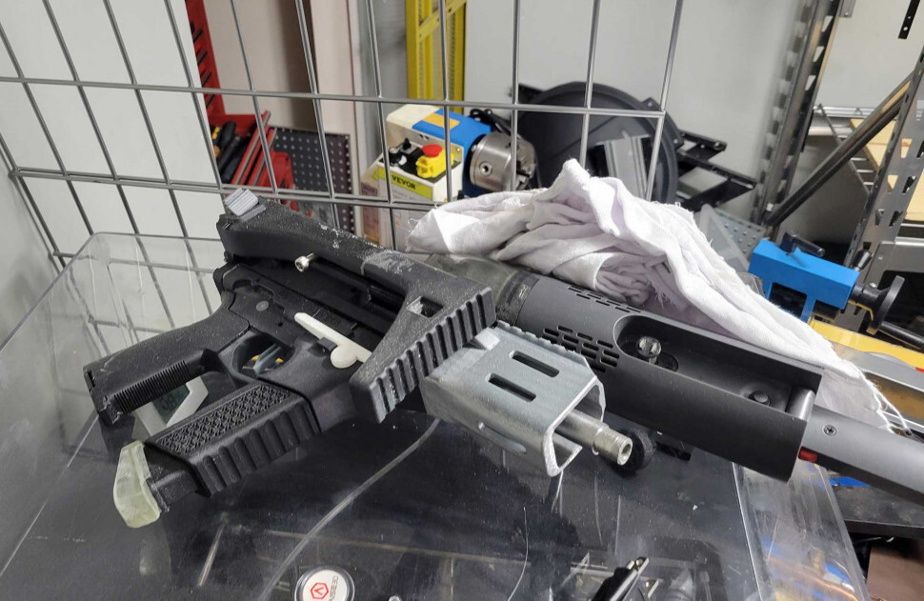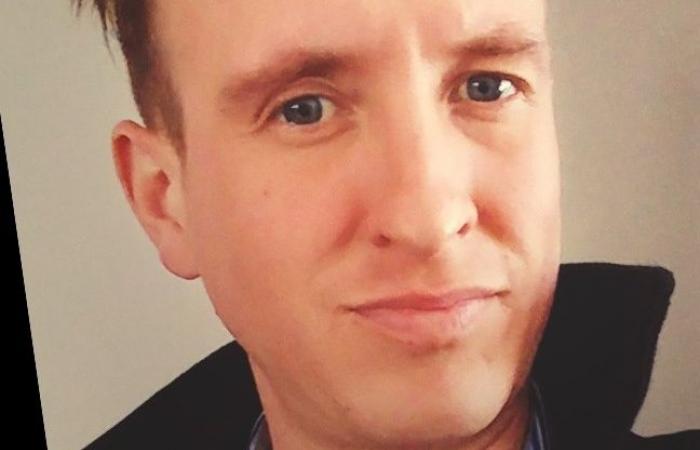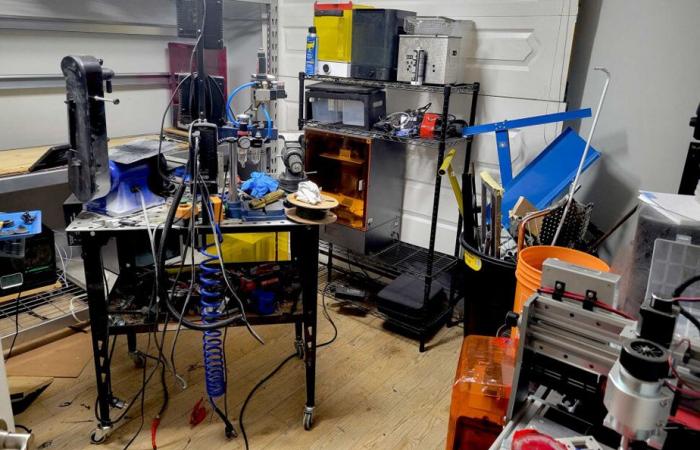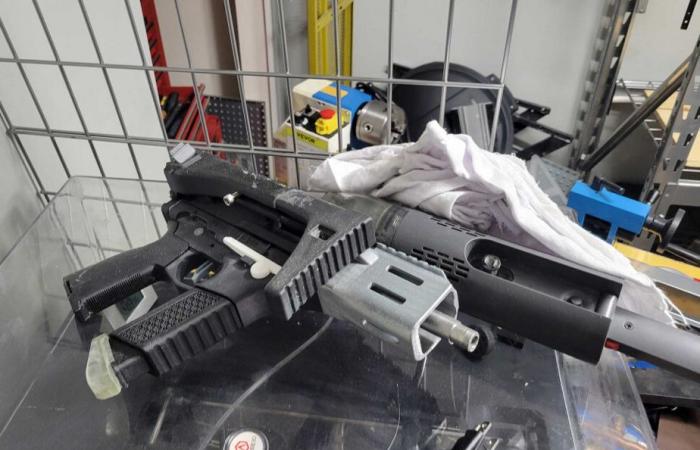An anti-Semitic Internet user from Deux-Montagnes who transformed his condo into a firearms manufacturing factory is the first Canadian convicted of possessing and sharing computer files allowing the creation of a weapon with a 3D printer, a new provision of the Criminal Code.
Published at 6:00 a.m.
What you need to know
- A new provision in the Criminal Code prohibits Canadians from possessing or distributing computer files allowing the manufacture of a firearm with a 3D printer;
- Pascal Tribout, a Nazi sympathizer from Deux-Montagnes, was the first Canadian to plead guilty to such charges;
- He told an undercover RCMP officer that these weapons are easy to disappear to commit a “perfect crime.”
Pascal Tribout, who saw his creations as tools to commit a “perfect crime” against Jews, voluntarily pleaded guilty on Friday to a series of firearms-related charges that could earn him up to five years in prison. prison.
When patrol officers from the Deux-Montagnes Regional Police Department entered the 37-year-old man’s home in February 2024 for a burglary alarm, the floors were littered with tools, debris and parts of all kinds. The windows were blocked by sheets, and a 3D printer was running in his bedroom.
PHOTO PROVIDED BY RCMP
A 3D printer and various equipment used to manufacture a firearm seized from Pascal Tribout
A few days later, Tribout, without realizing that he was the subject of an investigation, began talking to an undercover RCMP officer on an anti-Semitic forum that he frequented. He sent him a photo of a weapon that he said he had entirely printed in 3D, thanks to plans gleaned from the internet of a model called FGC-9, the acronym of Fuck Gun Control 9 mm. He later sent her digital blueprints and an instruction guide for making similar weapons with a 3D printer.
“You shoot someone with this, then you melt it afterwards, you make the evidence disappear, it becomes a perfect crime,” he wrote to the undercover agent.

PHOTO PROVIDED BY RCMP
FGC-9 type firearm seized from Pascal Tribout
During the search that followed, the police found this weapon as well as around thirty weapon frames machined with a 3D printer, in different degrees of finish, of FGC-9s, Glock pistols and semi-automatic rifles. type AR-15 and TEC-22. They also seized a prohibited magazine, daggers and other bladed weapons made with a 3D printer, as well as Nazi propaganda.
After tests, ballistics experts from the Forensic Science and Forensic Medicine Laboratory found, however, that the FGC-9, although apparently functional, was not quite ready. “The chamber of the gun was too narrow to accommodate a 9 mm cartridge,” explained federal Crown attorney Mr.e Gabriel Lapierre, to judge Sylvian Lépine.
The frames of the seized weapons then broke during laboratory tests.
The Crown and defense therefore agreed that the accused would plead guilty to a reduced count of “attempt” to manufacture a prohibited firearm.
“The State intervened in a timely manner”, nevertheless insisted Me Lapierre, since the accused was only one manipulation away from creating a functional weapon.
Pascal Tribout admitted his guilt to two counts of having possessed and distributed “computer data relating to firearms or relating to prohibited devices that could be used with a 3D printer”. This is a new offense in the Criminal Code, which came into force in December 2023, as part of a bill tackling the proliferation of so-called “ghost” firearms.
Mr. Tribout is, according to the RCMP, the first Canadian convicted under this new provision.
Fomented hatred
The accused also pleaded guilty to one count of willfully promoting hatred against the Jewish community.
On the Télégram network, he relayed conspiracy theories about the Or jabaccording to which the COVID-19 pandemic is a Jewish hoax aimed at making vaccination compulsory to poison the population.
“Erroneously believing he was protected by freedom of expression,” he said he was in favor of surprise “Mad Max” executions for Jews and asserted that the government is a “slavery system,” says the agreed statement of facts filed to the judge.
Pascal Tribout claims to have made these comments while he was impaired by alcohol and drugs.
His sentence will not be determined until next April, but the Crown has already announced its intention to seek five years of incarceration. Earlier this year, a Gatineau man, Tobie Laurin-Lépine, received six years in prison for similar charges of making an FGC-9 weapon with a 3D printer. However, no ideological motivation motivated his action.
“We believe that the sentence handed down must be strictly exemplary and send a clear message both to the accused and to his possible potential accomplices: these types of actions and behaviors will not be tolerated in our country,” said the Jewish organization B’nai Brith, in a statement that was read to the Court.








